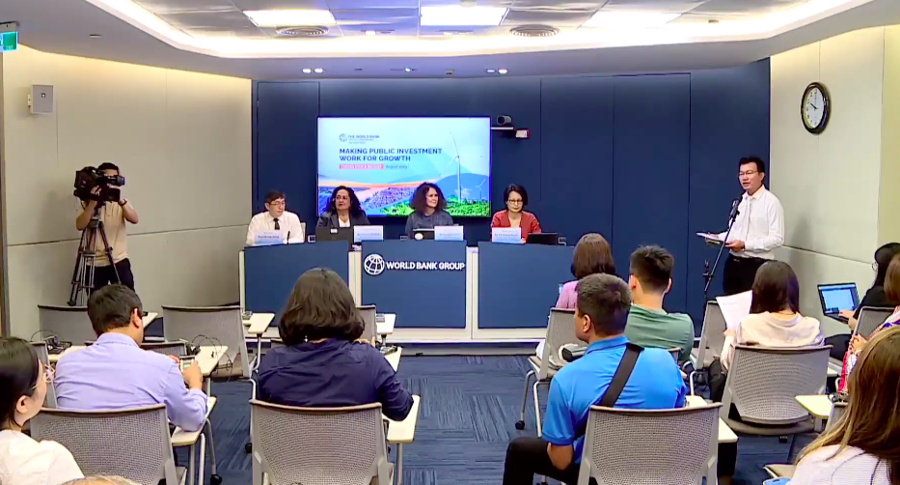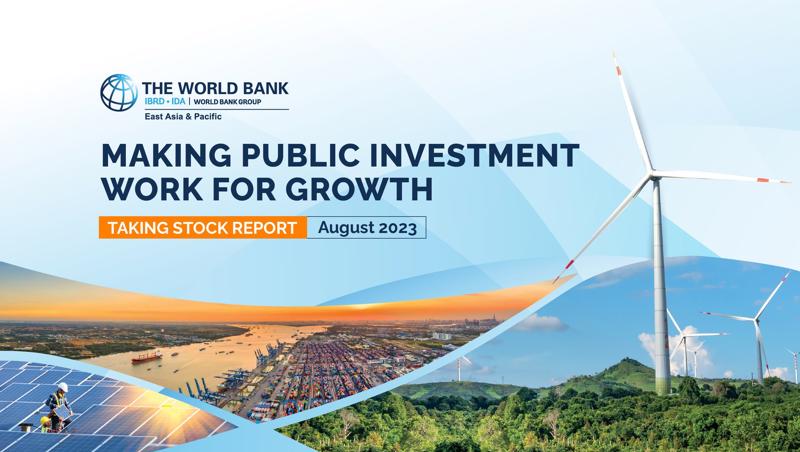Difficulties from the external environment and weak domestic demand are slowing down the Vietnamese economy. However, the economy is nonetheless forecast to accelerate in the second half of this year and the following years, according to the Taking Stock August 2023 report released on August 10 by the World Bank.
According to Ms. Carolyn Turk, Country Director for Vietnam at the World Bank, Vietnam’s economy is facing challenges from internal and external factors. To promote economic growth, the government can support aggregate demand through efficient public investment, thereby creating jobs and stimulating economic activity.
“In addition to short-term support measures, the government should not ignore structural reforms, including in the energy and banking sectors, which are essential for long-term growth,” she added.
The World Bank projects growth of 4.7 per cent in 2023, with a gradual recovery to 5.5 per cent in 2024 and 6 per cent in 2025.
Vietnam’s economic growth slowed from 8 per cent in 2022 to 3.7 per cent in the first half of 2023, the report noted. The reason was due to a sharp decline in external demand, reflected in a 12 per cent fall in export turnover compared to the same period last year. The export sector, which is estimated to contribute about 50 per cent of Vietnam’s GDP, was heavily affected. Domestic demand also slowed due to the gradual reduction of the low starting effect of the post-Covid-19 recovery period last year, and the weakening of consumer confidence. The growth rate of final consumer spending slowed to only 2.7 per cent in the first half of the year, much lower than the 6.1 per cent rate in the first half of 2022.

Despite the slowdown, domestic demand is expected to remain the main driver of growth in 2023. Private consumption will remain solid, with growth of 6 per cent year-on-year, slightly lower than the pre-pandemic growth rate of 7 per cent year-on-year in 2019, contributing 3.4 percentage points to GDP growth.
Investment will contribute 1.8 percentage points to GDP growth. Private investment is expected to decrease slightly, with a growth rate of 4.3 per cent year-on-year, down sharply from 8.2 per cent in the same period of 2019, due to uncertainties in the external environment, and contribute 1.2 percentage points to GDP growth.
Regarding the FDI sector, according to Ms. Dorsati Madani, Senior Economist at the World Bank, the outlook for Vietnam remains solid as it is still an attractive destination for foreign investors. Even during the Covid-19 period, Vietnam proved itself to be a healthy exporter when it was able to supply export products to other markets. “I think foreign investors are still more interested in bringing investment to Vietnam than other countries, thanks to the government’s determination and the stability of the environment. In addition, being an open economy and participating in many FTAs makes Vietnam an attractive destination for potential investors.”
The report recommends several policies to get the economy back on track. Effective implementation of the 2023 public investment budget can stimulate aggregate demand and economic growth. Regarding exports, the report recommends diversifying export products and destinations to build medium-term resilience to external shocks. At the same time, fiscal policy can play a stronger role in encouraging green practices and consumption, contributing to building a sustainable environment.
The special topic of the report focuses on Vietnam’s public investment management and how public investment can contribute to the goal of seeing Vietnam become a higher income country. To harness the power of public investment, the report recommends that Vietnam maintain investment levels, improve project quality, and overcome shortcomings in public investment management and inter-sectoral financial institutions.









 Google translate
Google translate